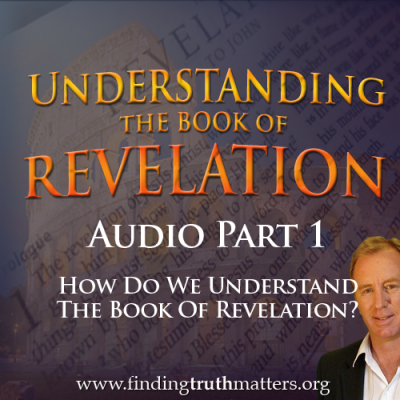But we had hoped that He was the one to redeem Israel. Yes, and besides all this, it is now the third day since these things happened.
Luke 24:21
 Almost immediately after Jesus was resurrected, He joined two of his followers walking along the road to Emmaus. They were shattered. Their hopes were dashed. They had a picture of Jesus that Jesus didn’t live up to. And it seems ever since this time people- both Christ-followers and skeptics alike, have found reason to be disappointed with Jesus. They had “hoped”, we read in Luke 24:21, that Jesus would be the Redeemer of Israel, the One to deliver them from the oppression of the godless, ruthless, pagan Romans. But He didn’t. And therefore all that Moses, the Prophets and the Writings had said about Him was false. Or so they thought.
Almost immediately after Jesus was resurrected, He joined two of his followers walking along the road to Emmaus. They were shattered. Their hopes were dashed. They had a picture of Jesus that Jesus didn’t live up to. And it seems ever since this time people- both Christ-followers and skeptics alike, have found reason to be disappointed with Jesus. They had “hoped”, we read in Luke 24:21, that Jesus would be the Redeemer of Israel, the One to deliver them from the oppression of the godless, ruthless, pagan Romans. But He didn’t. And therefore all that Moses, the Prophets and the Writings had said about Him was false. Or so they thought.
Hope is a powerful drive. It keeps a person going despite their circumstances. It promises that bad times won’t last and good times are just around the corner. We all need hope. But when it seems that hope is continually without basis it has the affect of making the heart sick (Prov. 13:12).
Just as these early Christ-followers were disappointed with Jesus, so too there are today many people who are similarly disappointed with the Christ of the Bible. They are told that God is an all-powerful, good and loving God and that He hates evil. They then experience the loss of a loved one through tragedy and then turn to this all-powerful, good and loving God with their dashed hopes and the accusation that perhaps He is neither all-powerful, nor very good, and perhaps not even that loving.
 Many Christians are taught that asking questions about their beliefs is something that encourages doubt. But this is not what either Jesus or the New Testament taught. In fact, within this exchange between Christ and His followers, we find that both He and His followers asked questions. Curiously, these two Christ-followers were asking questions of Christ which expressed their disappointment in Him.
Many Christians are taught that asking questions about their beliefs is something that encourages doubt. But this is not what either Jesus or the New Testament taught. In fact, within this exchange between Christ and His followers, we find that both He and His followers asked questions. Curiously, these two Christ-followers were asking questions of Christ which expressed their disappointment in Him.
(17) And he said to them, “What is this conversation that you are holding with each other as you walk?” And they stood still, looking sad. (18) Then one of them, named Cleopas, answered him, “Are you the only visitor to Jerusalem who does not know the things that have happened there in these days?” (19) And he said to them, “What things?” And they said to him, “Concerning Jesus of Nazareth, a man who was a prophet mighty in deed and word before God and all the people, (20) and how our chief priests and rulers delivered him up to be condemned to death, and crucified him. (21) But we had hoped that…
Luke 24:17-21
This amazing exchange between Jesus and His two disappointed followers did not result in Jesus rebuking them for their questions. In fact, He Himself asked questions of these followers. The fact that Jesus went on to explain to His Emmaus Road followers all the answers to their questions is quite telling: questions and Christianity are compatible – Christianity can handle scrutiny!
.
DISAPPOINTMENT WITH JESUS CAUSED BY BIBLICAL ILLITERACY
Jesus corrected a major flaw in the thinking of these Emmaus Road disciples. Instead of telling them to stop doubting by asking questions, He rebuked them for failing to correctly form their opinions of Him because they had not interpreted Scripture correctly.
And He said to them, “O foolish ones, and slow of heart to believe all that the prophets have spoken! Was it not necessary that the Christ should suffer these things and enter into his glory?” And beginning with Moses and all the Prophets, He interpreted to them in all the Scriptures the things concerning Himself.
Luke 24:25-27
 Christ’s response to His disappointed disciples was to answer their nagging doubts and questions by helping them to correctly interpret the Scriptures. This is perhaps one of the most serious causes of disappointment with Jesus: a wrong understanding of the Scriptures. In Luke 24:25-27 Jesus interprets Scripture correctly. This should be our goal so that we too avoid unnecessary disappointment with Christ.
Christ’s response to His disappointed disciples was to answer their nagging doubts and questions by helping them to correctly interpret the Scriptures. This is perhaps one of the most serious causes of disappointment with Jesus: a wrong understanding of the Scriptures. In Luke 24:25-27 Jesus interprets Scripture correctly. This should be our goal so that we too avoid unnecessary disappointment with Christ.
Biblical illiteracy is rife. There was a time in Western culture when people were very familiar with the Bible and its language. The language of the Bible once punctuated our own language. “Go the extra mile“, “Draw the short straw“, “They crucified him“, and so on. As such, it was more likely that people understood who the real Jesus was. But then something shifted in the twentieth century. With the rise of superstar TV/’Crusade’ preachers the message of Jesus in the Gospel became almost a competition to see who could present the latest revelation on how to get more ‘power’, ‘victory’ and ‘anointing’ from Jesus.
Some of these preachers have claimed they had received a special revelation that if their followers would receive and apply it, they could live above poverty, sickness and sadness and receive pseudo-psychic insight into the future [read more about this]. All this has tended to present Jesus as Someone who can be manipulated spiritually to deliver amazing benefits that would lift formerly ordinarily struggling believers to almost god-like bliss.
But this ‘gospel’ misrepresents the real Jesus and sets up another Jesus who can only disappoint.
And this disappointment is now being shared by believer and non-believer alike, thus making believers susceptible to the claims of anti-christians that Jesus is a disappointment. Whenever people believe the wrongs things about Jesus they are bound to be disappointed and conclude that Christianity is untrustworthy. But it seems that people have always been disappointed with Jesus, even when He physically ministered on the earth. I want to examine this phenomena of Jesus-disappointment and how Jesus responded to it. This examination may give those who sincerely love Jesus today the answers to give to those who see no other reason but to be disappointed with Jesus…
 It is imperative that we achieve a correct understanding of Jesus by correctly understanding the Scriptures. But it is absolutely imperative that we have the Lord “open our eyes” (our understanding) so that we can “see” who He really is.
It is imperative that we achieve a correct understanding of Jesus by correctly understanding the Scriptures. But it is absolutely imperative that we have the Lord “open our eyes” (our understanding) so that we can “see” who He really is.
And their eyes were opened, and they recognized him. And he vanished from their sight.
Luke 24:31
It’s not that they opened their own eyes, it’s that the Lord graciously opened their minds so that they could perceive the truth. It’s worth noting that this revelation or epiphany took place after their questions about Christ were answered. This illustrates the point of apologetics: keep people from faith in Christ but answered questions are not a guarantee that people will put their faith in Christ.
We should be prepared to explore questions about Christ and the Scriptures. We do not need an extra-Biblical revelation to answer any of these questions. From this conversion between Christ (in Luke 24), with Cleopas and his friend, we note that Christ revealed to them that the Scriptures had their answers all along. They just hadn’t seen it. Much of our disappointment with Christ today is because we feel that He is either silent or not delivering on what we thought the Scriptures taught.
Some scurrilous Bible teachers make Jesus ‘the Genie’ and the Bible ‘the Bottle’. They almost claim that if we rub the Bible with their special revelation we can overcome debt, sickness, or undesirable circumstances. When Biblically illiterate believers find that this teaching doesn’t work in real life they are susceptible to disappointment with Jesus unless they discover that this is not what Jesus guarantees or what the Bible promises. The Bible actually teaches that believer and unbeliever alike are loved by God and provided for by God-
so that you may be sons of your Father who is in heaven. For he makes his sun rise on the evil and on the good, and sends rain on the just and on the unjust.
Matthew 5:45
But we shouldn’t distort God’s love and care as being some kind of automatic forgiveness or even indifference regarding our moral failures no matter how trivial we consider them.
There are only two types of people in the world: (i) those who are morally perfect and have no need of God’s forgiveness; (ii) those who are morally imperfect and therefore have a need to be forgiven by God. There doesn’t seem to be anybody in the first category. Therefore, there are two types of people within the second category of people: (a) Those who do not realise they are morally imperfect; (b) Those who have realised they are morally imperfect and have been prompted to ask God for forgiveness.
but God shows his love for us in that while we were still sinners, Christ died for us.
Romans 5:8
and forgive us our sins,
for we ourselves forgive everyone who is indebted to us.
And lead us not into temptation.”
Luke 11:4
While God loves us, cares for us by providing a glorious world which we can enjoy, and grants us the many blessings we enjoy, we need to understand that this world is subjected to “futility”.
For the creation was subjected to futility, not willingly, but because of him who subjected it, in hope.
Romans 8:20
 ‘Futility’ is frustration, disappointment, dashed expectations, sickness, pain, suffering, injustice. Rather than railing against God because this is the way the world is, the Bible speaks to the believer to trust God despite these adversities and look to Him to give you the strength to make it through. Added to this, the Scripture reveals to us that this life which subject to all kinds of futility is not all that God offers- we have the hope that for those who receive God’s offer of forgiveness and salvation there is a better life to be had beyond this one. That’s why Romans 8:20 concludes that this life is subjected to futility “in hope”.
‘Futility’ is frustration, disappointment, dashed expectations, sickness, pain, suffering, injustice. Rather than railing against God because this is the way the world is, the Bible speaks to the believer to trust God despite these adversities and look to Him to give you the strength to make it through. Added to this, the Scripture reveals to us that this life which subject to all kinds of futility is not all that God offers- we have the hope that for those who receive God’s offer of forgiveness and salvation there is a better life to be had beyond this one. That’s why Romans 8:20 concludes that this life is subjected to futility “in hope”.
This is why the Bible exhorts us to “endure” this life and adopt an eternal perspective.
More than that, we rejoice in our sufferings, knowing that suffering produces endurance,
Romans 5:3
By your endurance you will gain your lives.
Luke 21:19
Thus, the most disappointing question a disillusioned person can ask might be: How can a good, loving, all-powerful, God allow suffering and evil in this world? This was in essence what the two Emmaus disciples were asking. They had built a ‘straw Jesus’ and the real Jesus just didn’t measure up. They expressed this disappointment with various questions which seemed to be filled with all kinds of doubt. Christ didn’t rebuke them for their questions. But He did seem to express His own disappointment at their lack of trust in Him caused by their poor understanding of Scripture. Thus, He “opened the Scriptures” to them. This is the key to resolving any disappointment with Jesus. Rather than discarding Christ because He just doesn’t seem to deliver on all our selfish hopes, we should search the Scriptures and learn to trust Him despite life’s disappointments.
¶ Trust in the LORD with all your heart,
and do not lean on your own understanding.
In all your ways acknowledge him,
and he will make straight your paths.
Proverbs 3:5-6
Just because you have questions about God or the Bible doesn’t mean that you are too smart or even too skeptical to be a Christian. There are sufficient and satisfying answers despite the proliferation of people trying a sell a story of disappointment with Jesus. In my book, The Most Embarrassing Verse In The Bible, I deal with one such example of these kinds of anti-Christian attacks and show that far from Jesus being found to guess the future, He accurately foretold it.
May God take your questions of disappointment and exchange them for answers of hope that enables you to trust Him and endure the inevitable hardships of life.
Amen.
© February 12th 2009, Dr. Andrew Corbett, writing from Annapolis, Maryland, USA
-
Sale!

Understand The Book Of Revelation, Part 1 (Radio Edition)
Original price was: $1.25.$0.00Current price is: $0.00. -
Sale!

Understand The Book of Revelation, Part 2, Premium Audio Download
Original price was: $1.75.$1.25Current price is: $1.25. -
Sale!

Understand The Book of Revelation, Part 6, Premium Audio Download
Original price was: $1.75.$1.25Current price is: $1.25.









































0 Comments